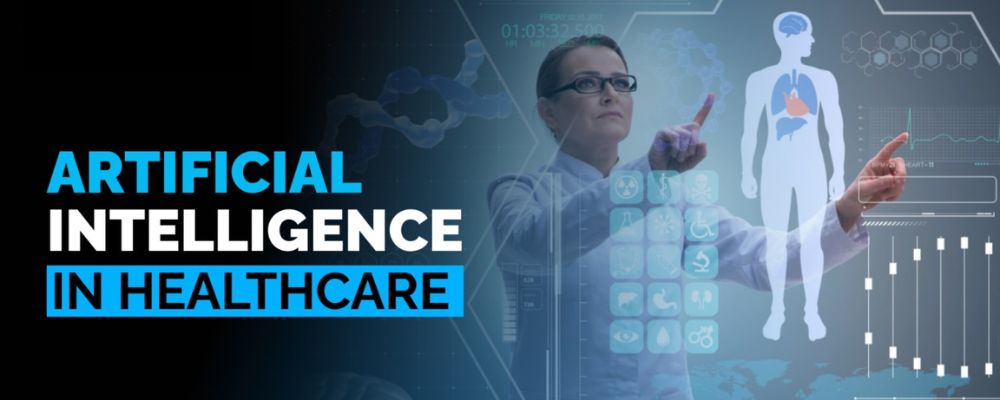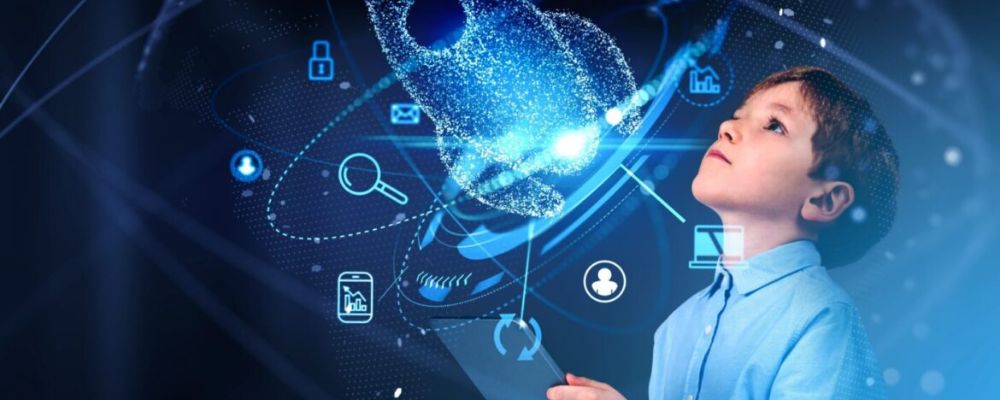
The healthcare industry is experiencing a seismic shift with the integration of Artificial Intelligence (AI). From enhancing diagnostic accuracy to personalizing patient care, AI is revolutionizing healthcare in unprecedented ways. In this blog, we will delve into how AI is transforming patient care and diagnostics, highlighting its applications, benefits, challenges, and future potential.
Understanding AI in Healthcare
AI in healthcare refers to the use of complex algorithms and software to emulate human cognition in the analysis, interpretation, and comprehension of complicated medical and healthcare data. The primary aim of health-related AI applications is to analyze relationships between prevention or treatment techniques and patient outcomes.
Applications of AI in Healthcare
1. Disease Diagnosis and Prediction
One of the most significant applications of AI in healthcare is in the realm of disease diagnosis and prediction. AI algorithms, particularly those based on deep learning, are trained on vast datasets of medical images and patient records to identify patterns and anomalies that might be indicative of diseases. For instance, AI systems are now capable of detecting early signs of diseases like cancer, diabetes, and cardiovascular conditions with remarkable accuracy.
- Cancer Detection: AI algorithms can analyze mammograms and detect breast cancer earlier than traditional radiologists. Similarly, AI systems are used for lung cancer screening and colorectal cancer detection through image analysis.
- Cardiovascular Diseases: AI-powered tools can predict heart diseases by analyzing patient data, including electronic health records (EHRs), to identify risk factors and suggest preventive measures.
2. Personalized Medicine Prediction
AI is playing a pivotal role in the development of personalized medicine, which tailors treatment plans to individual patients based on their unique genetic makeup and health data. Machine learning algorithms can analyze genetic information alongside clinical data to predict how a patient will respond to a particular treatment.
- Pharmacogenomics: AI can predict how patients will respond to different medications based on their genetic profiles, helping in the selection of the most effective drugs with minimal side effects.
- Tailored Treatment Plans: AI systems can recommend personalized treatment plans by considering various factors such as patient history, genetic predispositions, lifestyle, and more.
3. AI in Radiology
Radiology is one of the fields where AI has made a significant impact. AI algorithms can quickly and accurately analyze medical images, such as X-rays, CT scans, and MRIs, to assist radiologists in diagnosing diseases.
- Image Analysis: AI tools can enhance the speed and accuracy of image analysis, reducing the burden on radiologists and minimizing the chances of human error.
- Workflow Optimization: AI can automate routine tasks in radiology, such as image segmentation and annotation, allowing radiologists to focus on more complex cases.
4. Virtual Health Assistants
Virtual health assistants, powered by AI, are transforming patient care by providing real-time health advice and support. These AI-driven assistants can answer medical queries, remind patients to take their medications, and even schedule appointments.
- Patient Engagement: Virtual assistants enhance patient engagement by providing timely health information and reminders.
- Chronic Disease Management: For patients with chronic conditions, virtual assistants can monitor symptoms, provide dietary advice, and alert healthcare providers if any issues arise.
5. Predictive Analytics
Predictive analytics in healthcare involves using AI to analyze historical data and predict future health outcomes. This can help in early intervention and preventive care.
- Patient Monitoring: AI can monitor patients’ vital signs and predict potential health issues before they become critical, allowing for early intervention.
- Hospital Management: Predictive analytics can optimize hospital operations by forecasting patient admissions, managing staffing levels, and ensuring adequate resource allocation.
Benefits of AI in Healthcare
1. Enhanced Diagnostic Accuracy
AI algorithms, particularly those utilizing deep learning, can analyze vast amounts of medical data with greater precision than human clinicians. This leads to more accurate and earlier diagnoses, ultimately improving patient outcomes.
2. Improved Patient Outcomes
By enabling personalized treatment plans and early detection of diseases, AI contributes to better patient outcomes. Personalized medicine ensures that patients receive the most effective treatments, reducing trial-and-error approaches.
3. Increased Efficiency
AI can automate routine tasks, such as medical imaging analysis and administrative work, freeing up healthcare professionals to focus on more complex and critical aspects of patient care. This increases overall efficiency in healthcare delivery.
4. Cost Reduction
AI has the potential to reduce healthcare costs by streamlining processes, improving diagnostic accuracy, and preventing unnecessary treatments. Early detection and intervention can also lead to cost savings by reducing the need for extensive medical treatments.
5. Enhanced Patient Engagement
Virtual health assistants and AI-driven tools empower patients to take an active role in their healthcare. By providing timely information and reminders, AI helps patients adhere to treatment plans and manage their health effectively.
Challenges and Considerations
Despite its transformative potential, the integration of AI in healthcare is not without challenges. These include:
1. Data Privacy and Security
The use of AI in healthcare involves handling vast amounts of sensitive patient data. Ensuring the privacy and security of this data is paramount. Healthcare providers must comply with regulations like the General Data Protection Regulation (GDPR) and Health Insurance Portability and Accountability Act (HIPAA).
2. Bias in AI Algorithms
AI algorithms are only as good as the data they are trained on. If the training data is biased, the AI system will produce biased results. It is crucial to ensure that AI algorithms are trained on diverse and representative datasets to avoid perpetuating existing biases.
3. Ethical Considerations
The use of AI in healthcare raises ethical questions around the replacement of human judgment with machine decision-making. It is essential to strike a balance between leveraging AI’s capabilities and maintaining the human touch in patient care.
4. Integration with Existing Systems
Integrating AI solutions with existing healthcare systems and workflows can be challenging. It requires significant investment in infrastructure and training for healthcare professionals to effectively use AI tools.
5. Regulatory Approval
AI applications in healthcare must undergo rigorous testing and obtain regulatory approval before they can be widely adopted. This ensures that AI systems are safe, effective, and reliable.
Future Outlook
The future of AI in healthcare looks promising, with continuous advancements in technology and increasing acceptance among healthcare providers and patients. Some areas to watch include:
1. AI-Driven Drug Discovery
AI has the potential to revolutionize drug discovery by identifying new drug candidates and predicting their effectiveness. This could significantly shorten the time and reduce the cost associated with bringing new drugs to market.
2. Telemedicine and Remote Monitoring
AI-powered telemedicine platforms and remote monitoring tools will enable healthcare providers to deliver care to patients regardless of their location. This is particularly beneficial for patients in rural or underserved areas.
3. Advanced Robotics
AI-driven robotics will play a crucial role in surgeries and rehabilitation. Robotic systems can perform precise surgical procedures with minimal invasiveness, improving patient recovery times.
4. Enhanced Patient Data Analysis
With the proliferation of wearable devices and health apps, AI will be able to analyze vast amounts of patient data in real-time, providing valuable insights for personalized healthcare.
5. AI in Mental Health
AI can assist in diagnosing and treating mental health conditions by analyzing speech patterns, facial expressions, and other behavioral cues. This can lead to earlier intervention and better management of mental health issues.
Conclusion
AI is undeniably revolutionizing healthcare by enhancing diagnostic accuracy, personalizing patient care, and improving overall efficiency. As technology continues to evolve, the potential for AI in healthcare is boundless. However, it is crucial to address the challenges and ethical considerations associated with its implementation to ensure that AI is used responsibly and effectively.
In summary, AI’s integration into healthcare is not just a technological advancement; it is a paradigm shift that holds the promise of transforming patient care and diagnostics for the better. By embracing AI, the healthcare industry can move towards a future where patient outcomes are optimized, and healthcare delivery is more efficient and accessible.






